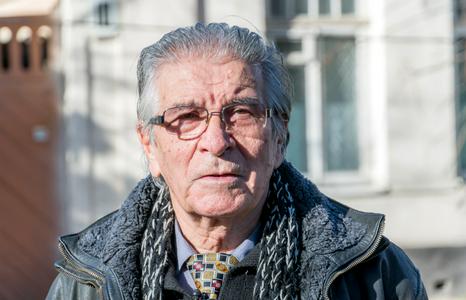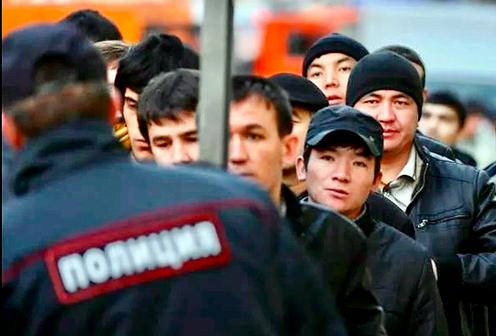President Vladimir Putin has approved the Concept of State Migration Policy of the Russian Federation for 2026–2030, which outlines the strategic goals, principles, and directions for regulating migration flows. The decree was signed on October 15.
The document signals a shift toward tighter regulation of migration, with an emphasis on comprehensive digital control, selective recruitment of foreign labor, and stricter requirements for foreign nationals. It notes that the new policy was developed in accordance with the National Security Strategy, the State Cultural Policy Strategy through 2030, and other key strategic documents, while also reflecting changes in Russia’s socio-economic and demographic situation.
According to the document, the main objectives of Russia’s migration policy include:
▶️ Developing and improving legal, organizational, and other mechanisms aimed at:
▪ Facilitating the voluntary resettlement to Russia of compatriots living abroad;
▪ Attracting foreign citizens whose investments, professional expertise, and experience can contribute to the development of the economy, science, education, culture, and the arts — provided they respect traditional Russian spiritual and moral values;
▪ Ensuring conditions for entry and temporary stay of foreigners interested in developing business, scientific, cultural, and other ties with Russia, engaging in entrepreneurship, or studying the Russian language, history, and culture;
▪ Regulating labor migration in line with the real needs of the Russian economy for both skilled and unskilled workers — ensuring transparency in recruitment procedures and effective oversight of these processes;
▪ Introducing mandatory procedures for identity and qualification verification — including biometric data collection, medical examinations, and confirmation of education, professional experience, and other credentials;
▪ Creating conditions for the adaptation of foreign citizens to Russia’s legal, socio-economic, cultural, and everyday realities.
▶️ Strengthening systems for preventing, detecting, and curbing violations of migration laws, as well as expanding digital infrastructure and adopting modern information technologies to enhance the efficiency of migration control.
▶️ Providing humanitarian assistance to certain categories of foreign citizens in accordance with international law and Russian legislation.
A Closer Look
The Concept of State Migration Policy of the Russian Federation for 2026–2030 aims to create a migration environment that promotes Russia’s socio-economic development, ensures national security, protects the domestic labor market, and strengthens interethnic harmony. The document emphasizes that the natural demographic dynamic — rather than immigration — should remain the primary source of replenishing the labor force, with migration serving only as an auxiliary tool for addressing specific economic needs.
One of the key innovations outlined in the Concept is the extensive use of digital technologies. Russian authorities plan to introduce “digital profiles” for all foreign nationals entering or residing in the country. Biometric data — including photographs and fingerprints — will be collected not only at border checkpoints but also abroad through specialized programs. Artificial intelligence will be used to process large volumes of data, and an electronic notification system will be developed for citizens of countries with visa-free entry.
The Concept also highlights the principle of “organized recruitment” of foreign workers in line with the needs of the Russian economy. To this end, selection and training infrastructure for migrants will be established directly in their countries of residence. Employers will bear greater responsibility: they will be required to oversee the worker’s stay in Russia, and employment contracts will be formalized in electronic form.
The document stipulates tighter requirements for migrants. To remain in the country, foreign nationals must demonstrate proficiency in the Russian language, as well as knowledge of Russian history and the fundamentals of national law. Only state-accredited institutions will be authorized to issue the relevant certificates. The delegation of examination rights to third parties will be prohibited, and enrollment in basic general education programs will be allowed only for legally residing foreigners who have passed mandatory, state-provided testing.
Regional authorities will be granted the power to restrict the registration of foreign citizens in certain municipalities — a measure intended to prevent the formation of ethnic enclaves. Additional provisions will limit the stay of non-working and non-studying family members of labor migrants.
Priority will be given to attracting foreigners who “share traditional Russian spiritual and moral values,” as well as compatriots abroad, for whom the state resettlement program will continue.
To combat illegal migration, the Ministry of Internal Affairs will be authorized to enforce administrative deportations. Foreign nationals residing in Russia illegally will be prohibited from entering into civil transactions or participating in other legal relations.
What the Russian authorities expect
The Concept outlines several projected outcomes to be achieved by 2030:
▪️ a reduction in the number of foreign nationals residing illegally in Russia;
▪️ a decrease in administrative offenses committed by migrants;
▪️ a decline in the number of foreign children not attending school, along with an increase in foreign students enrolled in Russian universities and research institutions;
▪️ a higher share of foreign workers recruited through the organized, targeted system;
▪️ an increase in the number of resettled compatriots who share traditional Russian spiritual and moral values.
The Ministry of Internal Affairs has been designated as the lead body responsible for developing and implementing migration policy. The Russian government must approve an implementation plan by the end of 2025, ensure its enforcement, and submit annual progress reports to the president. Regional and local authorities are advised to follow the Concept’s provisions when carrying out activities in the field of migration.
-
 14 February14.02From Revolution to Rupture?Why Kyrgyzstan Dismissed an Influential “Gray Cardinal” and What May Follow
14 February14.02From Revolution to Rupture?Why Kyrgyzstan Dismissed an Influential “Gray Cardinal” and What May Follow -
 05 February05.02The “Guardian” of Old Tashkent Has Passed AwayRenowned local historian and popularizer of Uzbekistan’s history Boris Anatolyevich Golender dies
05 February05.02The “Guardian” of Old Tashkent Has Passed AwayRenowned local historian and popularizer of Uzbekistan’s history Boris Anatolyevich Golender dies -
 23 December23.12PhotoTokyo DriveJapan to invest about $20 billion in projects across Central Asia over five years
23 December23.12PhotoTokyo DriveJapan to invest about $20 billion in projects across Central Asia over five years -
 17 December17.12Sake for SixCentral Asia’s Rapprochement with Japan Comes with Hidden Pitfalls
17 December17.12Sake for SixCentral Asia’s Rapprochement with Japan Comes with Hidden Pitfalls -
 24 November24.11Here’s a New TurnRussian Scientists Revive the Plan to Irrigate Central Asia Using Siberian Rivers
24 November24.11Here’s a New TurnRussian Scientists Revive the Plan to Irrigate Central Asia Using Siberian Rivers -
 11 November11.11To Live Despite All HardshipUzbek filmmaker Rashid Malikov on his new film, a medieval threat, and the wages of filmmakers
11 November11.11To Live Despite All HardshipUzbek filmmaker Rashid Malikov on his new film, a medieval threat, and the wages of filmmakers




